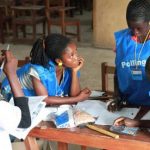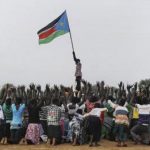Underhand dealings ensure the vast majority of DRC society is excluded from the benefits of the country’s mineral wealth.
By Lewis Brooks

Mining for minerals in the Democratic Republic of Congo (DRC) is big business. The DRC holds vast reserves of cobalt, copper, gold, diamonds and many other minerals with one estimate putting the value of its natural resource wealth at $24 trillion. However, the country performs very poorly on development indices.
Why has the DRC been unable to convert its great mineral assets into wealth for its people? The answer lies somewhere in the relationship between the big businesses and politicians involved in the Congolese mining sector, and how these unions continually fail to be of benefit to the DRC’s citizens.
Underhand dealings exposed
Large amounts of the DRC’s resources are trapped in deposits that require industrial scale mining and processing to turn them into useable forms. Building the facilities for these kinds of operations requires considerable financial investment from the Congolese government, as well as companies in and out of Africa. Large sums of money change hands and relationships are forged, but more often than not the circumstances surrounding these deals are less than transparent and behind closed doors the Congolese people are getting a raw deal.
These concerns have not been helped by the serious allegations of chronic underselling of mining assets which arose in November 2011. British Member of Parliament and chair of the All Party African Great Lakes Group, Eric Joyce, released a string of documents which showed that the acquisition of Congolese mining assets by 9 of at least 45 ‘shell’ companies, recently incorporated in the British Virgin Islands (BVI), had no identifiable experience in the mining sector. These BVI shell companies acquired their shares in previously state-owned mining projects, at below market value, and then sold them on to multinational firms making a huge profit in the process.
Documents show, for example, that a previously state-owned 50% stake in the SMKK mining project was sold to Emerald Star Enterprises for around $15 million. But a fair market valuation of this asset places its value at approximately $75 million. In this one deal, the loss to the state mining company Gecamines, and thus to the Congolese people, was approximately $60 million.
Like many of the state asset sales, this deal was not put to public tender and the benefactors of the deal were not made public by the government. Unfortunately, according to the documents released by Eric Joyce, the SMKK project is just the tip of the iceberg in lost state assets; total losses to date, as a result of such underselling, is estimated to be some $5.5 billion. Joyce even chastises the IMF and states that it has “not been firm enough with the DRC government and has allowed the president and his advisors to run rings around them”.
Smoke and Mirrors
The people of the DRC are not the only ones to have lost out in these shady dealings. Back in 2009, the government seized the Kolwezi Copper Project from Canadian mining company First Quantum Minerals, stating that First Quantum had breached its contract. If the government’s allegations are true, then the seizure is a legitimate response to protect state interests. However, as the episode has developed in the years leading up to now, this perspective has become increasingly questionable. The Kolwezi tailings project was sold on by the DRC government to a group of BVI shell companies headed by Highwind Properties Ltd. According to Eric Joyce’s findings, the 70% share of the Kolwezi project was sold for $60 million. The difference between the price paid by the Highwind group and the fair market value of the assets is astounding; Joyce’s valuation puts their worth at $2.69 billion.
In the most recent development of the scandal, the main stakeholder in the Kolwezi project, Eurasian Natural Resources Corporation (ENRC), agreed to pay $1.25 billion to First Quantum to quell litigations launched by First Quantum against them, Highwind and the DRC government.
Business and Pleasure
The First Quantum/ENRC scandal and the underselling of state mining assets poses a serious question – what motivations are guiding mining policies in the DRC?
The deals are, for the most part, taken without putting the sales to public tender and the finer details are not made public. Furthermore, many of the BVI shell companies buying these mining assets at heavily lowered prices seem to be linked to the same businessman: Dan Gertler.
Both Highwind Properties Ltd and Emerald Star Enterprises are thought to be owned by The Gertler Family Trust. And Dan Gertler, an Israeli diamond merchant, is rumoured to have been involved in supplying President Kabila’s father, Laurent Kabila, with weapons during the Second Congolese war, and is now thought to be friends with President Joseph Kabila. This cross-generational friendship has likely facilitated Gertler’s companies’ windfalls.
Given the scale of the losses to the Congolese state, the nature of secrecy surrounding the selling of assets, and the DRC’s position of 168th (of 182 countries) in Transparency International’s Corruption Perception Index, claims that financial transactions involved personal dealings are far from implausible.
And allegations of personalised deals involving individuals in the government arising from the BVI scandal are not the first warnings of interference in the mining industry by Kinshasa politicians. In 2006, the Global Witness report ‘Digging in Corruption: Fraud, Abuse and Exploitation in Katanga’s Copper and Cobalt Mines’claimed that employees from the state-owned firm, Gecamines, were often pressured into rushing contracts to sell state-assets by politicians close to Kabila. There were also claims that Gecamines’ management structure was “corrupted” with private companies. One of the more worrying claims of the report is that companies are in fact unable to operate in the DRC’s mining industry unless they have a “political umbrella”. The experience of First Quantum suggests that this may well be the case.
Entrenched interests
Although the recent elections provided an opportunity for Kabila’s policies and the direction of the mining industry to be scrutinised, other issues dominated. And with polling over, it is unlikely that a similar chance to demand accountability in the industry will present itself for a while. The general culture of the mining sector is unlikely to change with Kabila in power and individuals friendly to the regime, such as Dan Gertler, are likely to continue to benefit from business.
Asking whether another result in the elections would have meant a wind of change in the mining sector is a largely speculative exercise but it is interesting that in the lead up to the elections, opposition presidential candidate Etienne Tshisekedi, met with First Quantum and other mining companies in Canada. Such a move could easily have worried those companies close to Kabila just as it would have reassured the companies which have lost out in the DRC before. Either way, the DRC’s mining industry does not look as though it is going to be hit by major changes whilst the current elites remain in power and continue to intervene in the industry.
The Joyce report and other developments, which have elucidated dealings tantamount to theft in the mining industry, have not brought comfort to those who hope that the DRC’s abundant mineral resources could be converted into wealth for its people. Companies connected to friends of the president have, in essence, robbed the DRC of a chance to develop. Joyce may call on intervention but with the elections passed, it seems as though the lack of transparency and the self-interested meddling of political elites is set to continue in the DRC’s industrial mining sector.

